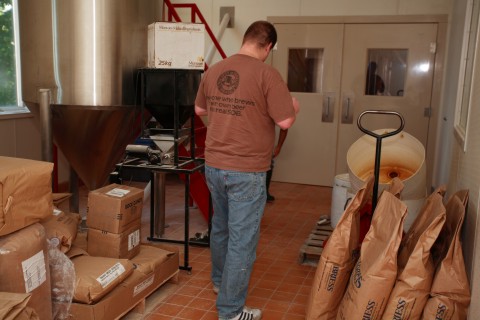Today's project: brew seven barrels (217 gallons) of our second-best-selling beer, All-American Gold. It's a pretty light beer, with only 350 pounds of malt. The target Original Extract is 9.1° Plato (specific gravity 1.036), with an estimated bitterness of 12 IBU and color of about 1.4° Lovibond.
(Note about the pictures here: they were taken during a brew last June by my wife's brother-in-law, Bill Blake. The smiling young man you see in many of the pictures is my former assistant/intern/rented mule Jeremy Kirby, who is now studying at the Versuchs- und Lehranstalt für Brauerei in Berlin. Jeremy works harder than I do, he cleans stuff better than I do, and he's going to make one hell of a good brewer.)
I put the malt in the grist case yesterday, and the water's hot, so I started mashing in right away at 9:21. It took about ten minutes to get the grist and the water into the mash tun, and thanks to the well-modified Briess malt that I use, I was able to start the vorlauf at 9:36. The runoff was cloudier than I like, but it tasted great, and the first runnings measured 18.6°P. Sparging ended around 11:00, and the kettle was full by 11:37. Last runnings measured 2.0°P, and the kettle extract was 11.0°P, quite a bit higher than my target of 8.4°P. Nice efficiency there.
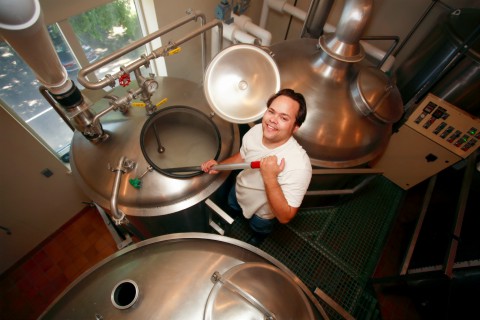
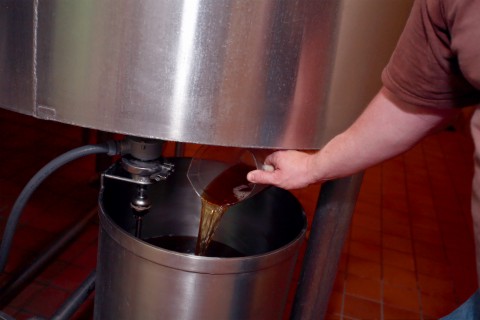
The wort started boiling at 12:15. In go the hops, about two pounds of Saazer. During the boil, I have time to hook up the fermenter hoses and pull the spent grain out of the mash tun.

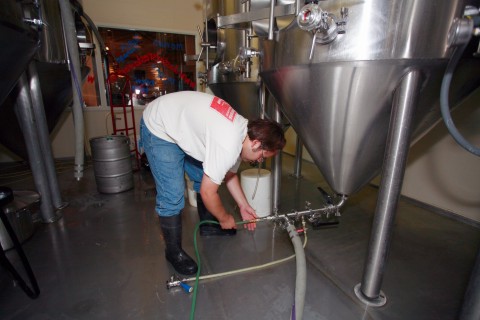

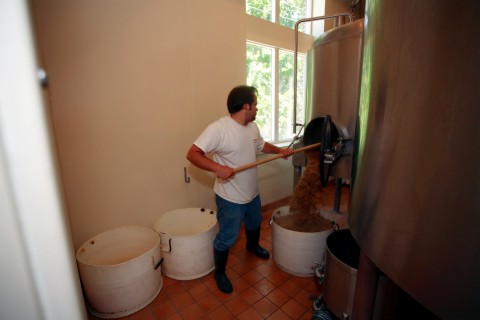
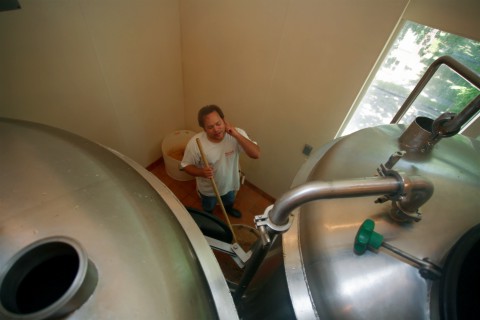
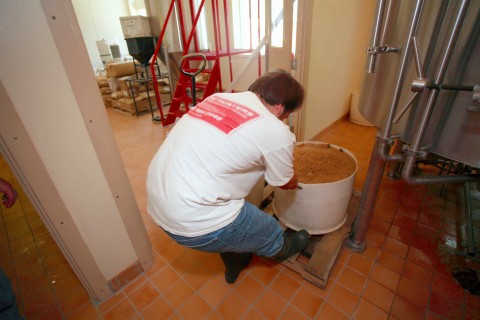
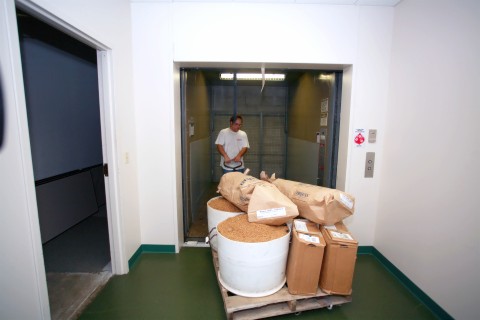
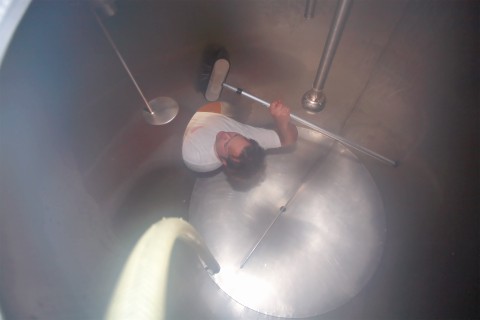
The Whirlfloc B®, an Irish-moss-like kettle coagulant, went into the kettle at 13:05, and the boil ended ten minutes later. The Original Extract is 11.2°P, much higher than my target, but that means I only got 1.8% evaporation. (Eight to ten percent per hour is what you should expect, but this system refuses to go that high.) The whirlpool pump runs for three minutes, then the wort settles for twenty. Usually I can nip downstairs to the pub to get a beer and a bite to eat, but today I have to use the time to finish cleaning the mash tun, since I've been busy typing these notes.
It's 15:00; the brewhouse vessels are clean, the heat exchanger is cleaned, rinsed, and sanitized, and the only thing left to do up here is mop the floor.
More goodies on my desk! Boxes and boxes of Tri-Clamp gaskets. I'm going to replace all 299 of them on all three floors in an effort to clean things up around here.
I got an order for a keg of All-American Gold, and he wants to pick it up tomorrow. Normally, that's Very Short Notice, but since I have to fill some kegs for tomorrow's beer festival in Lincoln, I told him I can fill his too. But I think I'll take a beer break first.
OK, that's better. It's amazing what a pint of Hefeweizen and a cup of clam chowder can do. It's ten minutes to four, and I have to fill a half-barrel of Gold, plus a sixth-barrel each of Gold, Princess of Darkness Porter, Fire in the Hole! Rauchbier, and Bugeater Brown Ale. I don't have my camera today, so I'll post pictures of the keg-filling process when I fill the regular weekly orders next Thursday or Friday.
16:15. The kegs are filled, the boots are off, and I've got about five minutes' worth of recordkeeping to do. Then I'll have one more beer and walk home.
So there you go; a rare day in the life of a brewer where everything went pretty much according to plan. Next time I brew, I won't go into nearly so much detail. Ditto for every new job (filtering, kegging, etc): I'll include all the gory details only the first time I write about it.
And now it's time for a beer at home. Tomorrow afternoon, I'll come back, load up the car, and drive down to the festival in Lincoln.





























